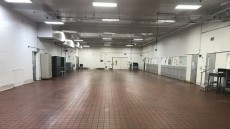英國分配二氧化碳排放許可證,降低水平
明年二氧化碳輸出,該行業麵臨更多的植物
第二階段的歐盟的碳排放交易方案(ETS)。
增加支出,減少二氧化碳排放增加了公司必須支付成本。他們還麵臨著麵孔,出現在火星,不遵循這些規則。壓力水平可以從各個工廠測量允許分配,3月16日公布的英國環境、食品和農村事務部(Defra)。年度配額明年生效,實際上直到2010年。2.37億年的英國已經把一頂帽子tonnnes每年排放的二氧化碳(CO2)植物由ETS的第二階段。帽,涵蓋植物覆蓋下連同那些退出了第一階段,代表一個排放減少13%相比,2005年整體輸出。在英國共有48個食品和飲料工廠由ETS,但73年服務計劃的第一個交易時期從2005年到2007年。數字僅指公司由英國食物&飲料聯合會。還有其他非會員食物和飲料協會網站不受。在第二階段,Defra約170萬噸的排放配額分配給食品和飲料公司,參與ETS的第一階段。 Another 153,000 tonnes have been allocated to those that opted out. Overall the sector accounts for 3 per cent of the total UK allocation for the second phase. The UK ETS covered about 1,000 installations in the country during the first phase. Companies included Unilever Bestfoods UK, Mars, Nestle, Gerber Foods Soft Drinks Ltd. and Dairy Crest among others. Brewers and cheese firms are also covered. ETS is part of the bloc's plan to reduce greenhouse gas emissions to meet international commitments under the Kyoto Protocol. The "cap-and-trade" scheme, which took effect from January 2005, allows companies to buy and sell CO2 emissions rights on specially constructed Internet sites. Plants that emit more CO2 than their allocation need to buy allowances to cover the extra emissions. Companies that emit less than their allocation are able to sell the allowances to companies that need them. For example CO2 emissions from Nestle's boiler house in Fawdon, which used 9,325 tonnes of its 10,310 tonne allocation, have been reduced to 8,270 tonnes per year duing the second phase. Nestle's plants in York and Halifax are covered by separate allocations. The food processing industry is a energy consumer and discharger of greenhouse gas through its reliance on cooking, refrigeration, freezing and air compressor systems. Last week the UK government published a new draft bill targeting a 60 per cent reduction of greenhouse gasses on 1990 levels by 2050, with an interim target of between 26 per cent and 32 per cent by 2020. Mars last year became one of the first food processors to run afoul of the EU's ETS, when Defra fined the company €78,080 (£52,532) for breaching the rules. Mars trades as Masterfoods in the UK. Mars was issued the civil penalty for failing to surrender allowances for 2005 by the regulatory deadline. The allocation list for the second phase will deliver savings of 29 million tonnes of CO2 each year, Defra stated. The list also removes the smallest emitters who had faced a disproportionate burden as a result of the scheme, the government department said. The decision removed 12 per cent of installations from the scheme who account for 0.3 per cent of emissions. CO2 is linked to causing a general rise in the temperatures worldwide. Each member state must detail its allocations and programme to reduce CO2 in a National Allocation Plan (NAP). The EU ETS covered approximately half of total UK CO2 emissions in 2003 and the non-traded sectors covered the remaining 50 per cent. Defra estimates that opted out plants emitted 30 million tonnes in 2005. Average projected CO2 emissions for the traded sector for the second phase would now cover about 52 per cent of the UK's total emissions.






